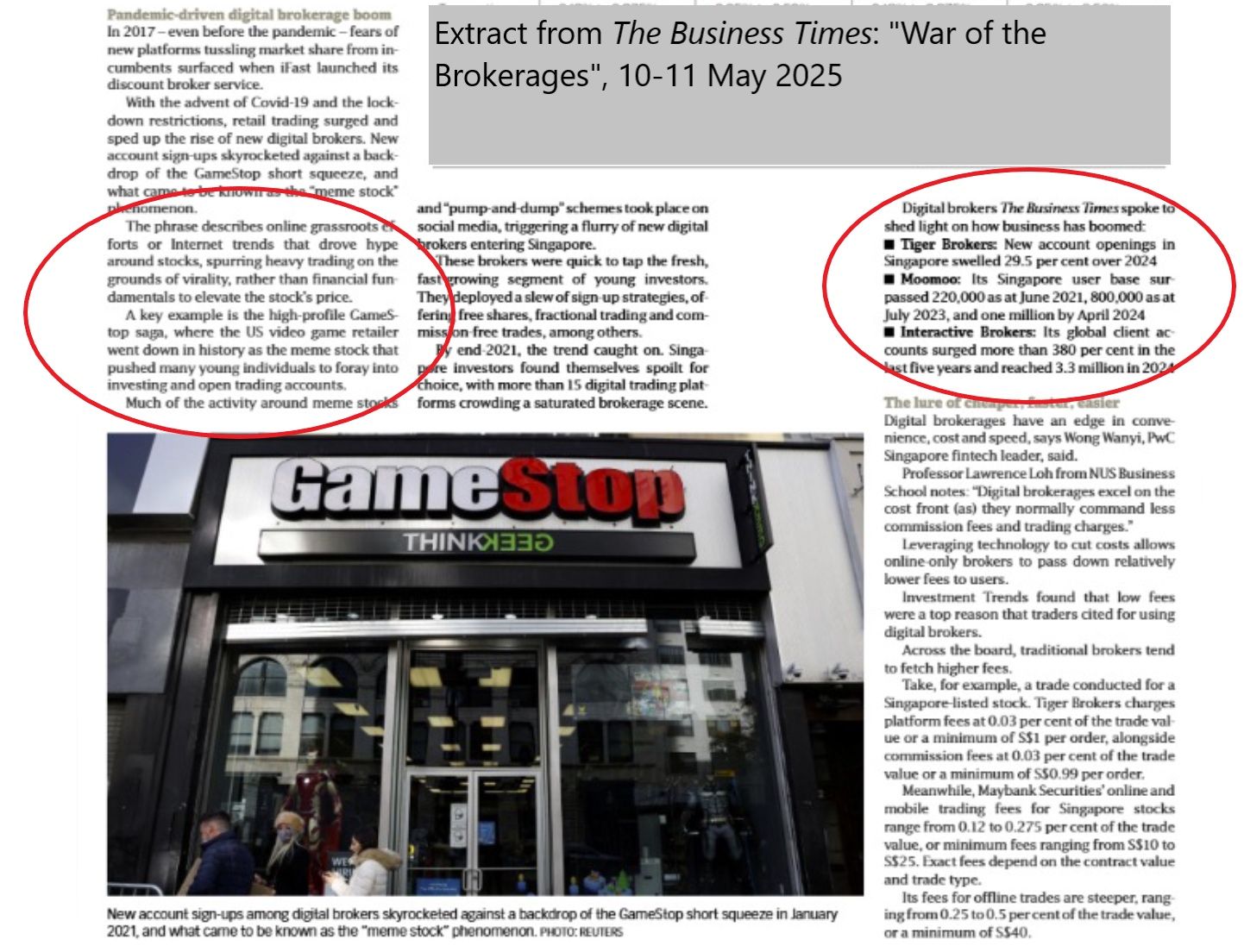Note: It was announced in November 2023 that MoneyOwl will be acquired by Temasek Trust to serve communities under a re-purposed model, and will move away from direct sale of financial products. The article is retained with original information relevant as at the date of the article only, and any mention of products or promotions is retained for reference purposes only.
______________
In this week’s world market update, global concerns about climate change’s impact and rising food prices owing to shortages grow. Despite this, our investment team shares why you should keep calm and remain in the market.
(23 May 2022 – 27 May 2022)
Last week, the S&P 500 and MSCI World gained 4.64% and 3.71% respectively while MoneyOwl’s 100% equity portfolio was up 3.21%, ending a 7-week losing streak and erasing its losses for the month of May to date. After a brief dip early in the week, the S&P 500 recovered by Friday’s close, to a level 13.85% below its record high set on 3 January 2022. This came on the back of economic data released on Friday showing some easing of inflationary pressures modestly in April compared to March. It remains to be seen whether this is just a temporary relief, or if the S&P 500 will continue with a downward trajectory in the upcoming week.
In Fixed Income, the US 10-year Treasury yield fell 12bps to 2.74%, which helped global bonds to end the week in positive territory.
Here is a look at some other noteworthy market headlines:
Climate Change Concerns
It is not just the markets that have been feeling the heat over the last few weeks. If you have been wondering why the weather has been hotter than usual, climate change is the culprit. In South Asia, heat waves pushed temperatures past 50 degrees Celsius in some parts of India and Pakistan over the last two months, with India recording its hottest March since 1901.
The effects have been cascading – a glacier bursting in Pakistan sending floods downstream and the destruction of wheat crops in India affecting its global supply already affected by the war in Ukraine, in addition to the impact on human health. The World Weather Attribution group shared that early and long heatwave on such massive scale are rare, once-a-century events but with the current level of global warming, this has made heatwaves 30 times more likely.
In Australia, eyes on the results of the government elections where Labor Party’s leader Anthony Albanese has vowed to make climate diplomacy his focus, as Australia remains one of the world’s largest per capita emitters and fossil fuel exporters. The party’s proposals aim to reduce greenhouse gas emissions by as 35% on 2005 levels by 2030, hoping that more aggressive measures would give emerging countries like China, India and Saudi Arabia greater impetus to accelerate their own efforts.
A Fowl Problem
In face of mounting global concerns over food shortages and rising prices, Putin has expressed his willingness to facilitate grain and fertilizer exports to overcome the current food crisis on the condition that the West’s politically motivated restrictions are lifted. It is unlikely that US and its allies would be willing to do so as Russia continues to persist with its war with Ukraine which has stretched into its fourth month. They have condemned Putin for weaponizing food. Before the war broke out, Ukraine was a key supplier of wheat, corn and sunflower oil to the world.
Closer to home, the impact of global shortages on grain feed for chickens has not only raised the prices of eggs but in the latest move to combat food inflation and improve food security, Malaysia will be banning chicken exports from 1 June, a move that will affect 3.6 million whole chickens sold overseas every month. With more than one-third of Singapore’s chicken supply coming from Malaysia, Singaporeans will need to face increased prices of their favourite chicken rice or look for alternative sources of protein.
Mixed feelings about China
China’s commitment to Covid Zero policy means that it is certain to miss its economic growth target by a large margin for the first time. Economists have revised the target GDP to 4.5%, down from the original forecast of 5.5%. Premier Li Keqiang held an emergency meeting with thousands of government and corporate representatives, calling on their consensus to do more to stabilise growth as the country’s economy is expected to fare worse than in 2020 with soaring unemployment. This is despite the broad package of measures to support businesses and stimulate demand that was announced earlier in the week. The package includes 140 billion yuan (US$21 billion) in tax rebates and 300 billion yuan in railway construction bonds.
US President Joe Biden was in Asia to discuss bilateral ties with Korea and Japan, looking again to bring together the US, Japan, India and Australia, “the Quad”, an alliance of democracies with shared economic and security interests that span the Pacific and Indian Oceans. The priority is to counter China’s growing power which rankled the leadership in Beijing amidst US-China tensions. In a statement made by Biden, he said that the US military would intervene to defend Taiwan in any attack from China, but White House officials were quick to correct that he meant that the US would provide military equipment to Taiwan and not send troops to defend the island if China attacks as this would constitute a landmark shift in policy.
Tech Woes
Social media stocks lost more than $135 billion in market value after Snap Inc. issued profit warning, adding to woes for a sector that is already suffering from slowing user growth and the impact of rate hikes. Shares in Snap Inc. tumbled 43% which triggered declines for peers including Meta, Alphabet and Twitter. Together these platforms compete for advertising dollars in an already saturated market during a challenging time, when inflationary pressures put a pause on company and consumer spending.
Apple Inc. will also be raising salaries for its retail workers by 10% or more and extending its global companywide compensation budget as it faces stiff competition for talent in the tight labour market and unionization efforts to help employees cope with inflation. Internal sources have also estimated that the company will assemble about the same number of iPhones in 2022 as last year, trailing market forecasts which expected higher quantities in view of a major iPhone update in the latter half of this year. Apple had earlier warned that supply problems will impact sales due to ongoing lockdowns in China, rising fuel and material prices.
Read more Market Insights here.
Disclaimer: While every reasonable care is taken to ensure the accuracy of information provided, no responsibility can be accepted for any loss or inconvenience caused by any error or omission. The information and opinions expressed herein are made in good faith and are based on sources believed to be reliable but no representation or warranty, express or implied, is made as to their accuracy, completeness or correctness. Expressions of opinions or estimates should neither be relied upon nor used in any way as an indication of the future performance of any financial products, as prices of assets and currencies may go down as well as up and past performance should not be taken as an indication of future performance. The author and publisher shall have no liability for any loss or expense whatsoever relating to investment decisions made by the reader.




